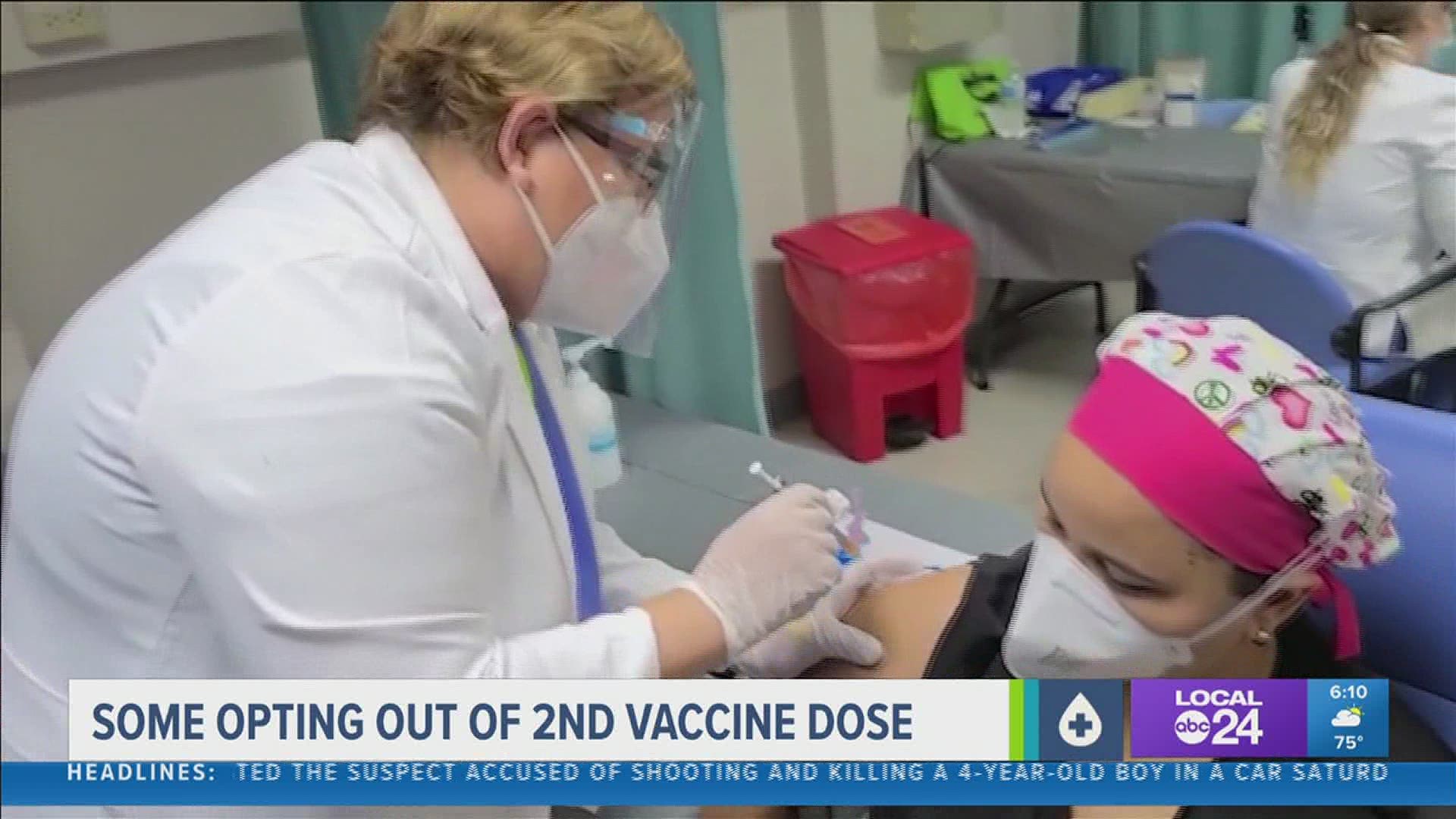MEMPHIS, Tenn. — “There is still a lot that we are learning about the vaccine,” said Dr. Bruce Randolph.
Tens of millions of Americans have now received at least one dose of the experimental COVID-19 vaccine. For many, Pfizer or Moderna provided those shots.
Although Johnson and Johnson, Pfizer, and Moderna have all been approved for Emergency Use by the Federal Drug Administration, health officials say we are still learning how this new drug works.
People are reporting a variety of symptoms following that first dose. Some are having minor issues like headache, nausea, dizziness, and others.
A few are experiencing extreme fatigue, chest pain, lymph node pain, and for some women, abnormal menstruation.
Dr. Bruce Randolph is a Health Officer for Shelby County.
He said, “Younger people tend to have greater side effects than older [people]. Also, it appears that people who have been previously infected with the virus may also experience some increased symptoms.”
He said he has seen reports of patients having issues with the first dose, issues that may prevent them from getting their second dose.
“The decision to get the second dose should be one made in consultation with your primary care doctor,” Dr. Randolph said.
He said the strong side effects happen as a result of an increased immune response.
For a person who has never experienced issues like these, they can seem alarming at first. But, these are normal.
He still recommends that eligible people take both doses.
“The reason why the two doses are required is because of the research in clinical trials,” he said.
He said the research in those clinical trials proved 94-95 percent efficacy in people vaccinated with both doses, verses close to 60 percent efficacy with just one.
The numbers reinforce the message.
If you don’t get the second shot, you will not be as protected as the first one.
Dr. Randolph said, "The risk of the COVID infection still outweighs the overall risk of the vaccine, at least, as we know it today."

